Top Crypto Narratives in 2024 - Token Metrics Moon Awards

Welcome to the Token Metrics Moon Awards, a distinguished recognition in the cryptocurrency industry that honors platforms, projects, and initiatives with significant impact.
Today, we're excited to announce a new Moon Awards category - Top Crypto Narratives in 2024.
Selection Process - Token Metrics highly values its audience, viewing them as the foundation of its operations. Our method, deeply ingrained in community engagement, ensures that our awards' results authentically represent crypto enthusiasts' sentiments and experiences.
Elevating Community Insights - The Moon Awards by Token Metrics aim to magnify the community's voice, offering a clear and concentrated assessment of the entities propelling advancement in the sector.
Through engagement with our community members and user voting, we've compiled a comprehensive list of the Top Crypto Narratives for 2024 based on extensive survey data and user votes.
This article will delve into the fabric of the crypto narrative, from deciphering its core concepts to exploring its significance and the upcoming trends that could shape the future economy.
As the crypto market navigates through the bearish chills, understanding these narratives becomes paramount in forecasting the trajectory of this digital revolution.
What are Crypto Narratives?
At the heart of the cryptocurrency ecosystem lie powerful stories and beliefs known as crypto narratives. These are the trending ideas that not only capture the imagination of investors but also profoundly shape the perception and valuation of digital currencies. Here is an exploration into what constitutes these narratives:
- Influence on the Market: Crypto narratives wield the power to sway investor sentiment and drive market trends. For instance, viewing cryptocurrencies as a store of value or blockchain as a disruptive force has significantly impacted the industry's evolution.
- The Need for Critical Evaluation: While narratives can catalyze adoption and innovation, they can also be misleading. It's crucial to critically evaluate and avoid narratives built on false assumptions or hype to navigate the crypto space effectively.
Importance of Crypto Narratives
The importance of crypto narratives in the investment landscape cannot be overstated. They serve as a compass, guiding investors through the complex terrain of digital currencies. However, the allure of these narratives can often be a double-edged sword:
- Investor Guidance: Crypto narratives can illuminate the path for investors, highlighting opportunities and signaling shifts in the market. They provide a framework for understanding the potential impact and growth areas within the digital currency space.
- Market Sentiment: The collective belief in a narrative can significantly influence market sentiment, often becoming a self-fulfilling prophecy as investment flows follow the prevailing story.
- Due Diligence: Despite their power, narratives require scrutiny. Investors must engage in critical evaluation to discern the substance from the hype. A narrative built on shaky foundations can lead to misplaced investments and financial losses.
By integrating a critical assessment of the next crypto narrative into their strategy, investors can better position themselves to capitalize on genuine opportunities while steering clear of the pitfalls of unfounded enthusiasm.
List of Top Crypto Narratives
As the crypto narrative continues to evolve, several key trends are emerging that are expected to shape the digital currency landscape in 2024:

Decentralized Physical Infrastructure Networks (DePIN)
In the Moon Awards survey, DePIN narrative secured the top position with 30.2% of the total votes.
Decentralized Physical Infrastructure Networks (DePIN) are revolutionizing how we construct and maintain the backbone of our digital world.
DePINs offer a novel approach to building resilient and efficient infrastructure by leveraging blockchain technology. Here's how they are shaping the future:
- Resource-Efficient Networks: DePINs utilize blockchains and token rewards to create networks that are not only decentralized but also optimize the use of physical resources. This approach is particularly impactful in industries reliant on data storage, connectivity, and computing power.
- Real-World Applications: From improving Internet infrastructure to supporting the burgeoning fields of AI and wireless communications, the applications of DePINs are vast. Their ability to cover a broad spectrum of infrastructure needs makes them a pivotal part of the next crypto narrative.
- Incentivization Through Token Rewards: At the core of DePINs is a peer-to-peer network that meets hardware demands through an open marketplace. Service providers are incentivized with crypto token rewards to contribute to the physical infrastructure, ensuring the network's growth and sustainability.
Artificial Intelligence (AI)
In the Moon Awards survey, the Artificial Intelligence (AI) narrative secured the 2nd position with 18.8% of the total votes.
Artificial Intelligence (AI) catalyzes a transformative shift in the crypto narrative, enhancing how digital currencies are traded and managed. Here are some ways AI is making an impact:
- Real-Time Data Analysis: AI algorithms are adept at processing vast amounts of data, offering real-time market monitoring and historical data analysis. This capability allows for identifying trends and patterns that might elude human traders.
- Adaptive Learning: These systems are not static; they learn from past trading data, refining their algorithms to improve decision-making and performance over time.
- Objective Trading Strategies: AI trading tools offer discipline and consistency by making decisions based on predefined criteria. This objectivity is critical in developing strategies less prone to the influence of human emotion or error.
AI's integration with blockchain technology is not just limited to trading. It extends to various sectors, including healthcare and supply chain, where it brings new intelligence to blockchain-based business networks.
Gaming (GameFi)
In the Moon Awards survey, the GameFi narrative secured the 3rd position with 14.4% of the total votes.
GameFi emerges as a pivotal trend in the evolving crypto narrative, blending entertainment with economic incentives. Here's how GameFi reshapes the digital currency landscape:
- Play-to-Earn Model: GameFi introduces a play-to-earn (P2E) framework, rewarding players for their time and skills within gaming ecosystems. This model is a significant departure from traditional gaming. It has led to a surge in cryptocurrency demand as players earn and spend digital currencies within games, contributing to their value appreciation.
- Asset Ownership and Liquidity: By leveraging NFTs, GameFi enables true ownership of in-game assets, allowing players to trade and monetize them. This increases the utility of cryptocurrencies and introduces a new level of liquidity to digital assets.
- Interoperability and Ecosystem Connectivity: GameFi's embrace of interoperability encourages a more integrated crypto ecosystem. It allows seamless interactions between diverse gaming platforms and DeFi protocols, enhancing the user experience and fostering a robust crypto narrative.
Decentralized Finance (DeFi)
In the Moon Awards survey, the Decentralized Finance (DeFi) narrative secured the 4th position with 13.2% of the total votes.
Decentralized Finance (DeFi) is anticipated to significantly expand by 2024, with many financial services being constructed atop decentralized platforms. This growth trajectory is underscored by the following emerging trends and developments:
- Innovative Financial Instruments: DeFi is set to welcome novel mechanisms like liquid staking derivatives, which unlock the potential of illiquid-staked assets. Users can generate additional yield while participating in other DeFi activities, such as lending or liquidity provision.
- Real World Asset Integration: The Tokenization of Real World Assets (RWAs) is bridging the gap between traditional finance and DeFi, offering a new source of yield on-chain. Despite the challenges of scalability, regulatory implications, and security concerns, the future of RWAs in DeFi is promising, with the potential to revolutionize how we view asset ownership and investment.
- Regulatory Evolution: The DeFi space continues to receive increased regulatory attention. Ripple's president, Monica Long, foresees a significant move towards DeFi compliance in 2024, aligning with the recent actions by the U.S. Securities and Exchange Commission. The SEC's redefinition of 'dealer' and 'government securities dealer' has been met with resistance from DeFi liquidity providers, who are concerned about the implications for the sector's autonomy and liquidity.
The DeFi market's projected growth at an annual rate of 15.86% from 2023 to 2028 is a testament to its resilience and innovation. Key factors contributing to this resurgence include: - Integration with Traditional Finance: The melding of conventional financial systems with DeFi is paving the way for universal access to financial services, marked by increased efficiency and inclusivity.
- Autonomy and Security: DEXes and AMMs continue to provide unmatched autonomy, security, and accessibility, offering users a diverse array of assets without the need for traditional intermediaries.
- Governance Tokens: The interest and investment in governance tokens are expected to surge, reflecting the community-driven ethos of DeFi and the emphasis on decentralized decision-making.
Moreover, the emergence of Central Bank Digital Currencies (CBDCs) will likely complement the DeFi ecosystem by 2024, with more countries embarking on pilot projects.
Real World Assets (RWA)
In the Moon Awards survey, the Real World Assets (RWAs) narrative secured the 5th position with 8.6% of the total votes.
Real World Assets (RWAs) in cryptocurrency are redefining investment strategies within the evolving crypto narrative.
The tokenization of RWAs on blockchain platforms transforms assets from the traditional financial world, such as real estate and commodities, into more accessible and liquid forms. Here's how the process unfolds:
- Tokenization and Fractionalization: Assets are broken down into smaller, tradable units on a blockchain, making high-value investments like real estate or art accessible to a broader audience. Investors can now diversify their portfolios by acquiring fractional interests in various assets, which was previously unattainable for many due to high entry barriers.
- Enhanced Liquidity and Security: Tokenization significantly increases the liquidity of traditionally hard-to-sell assets, facilitating quicker and easier transactions. It addresses common concerns among traditional investors regarding cryptocurrency investments, such as market volatility and complexity, by providing a secure and stable investment option.
- Investment Process: To invest in tokenized RWAs, one must select a credible platform, complete necessary KYC procedures, and secure a digital wallet. Conducting due diligence on the asset is crucial and staying informed about regulatory developments that could impact the investment.
Modularity
In the Moon Awards survey, the Modularity narrative secured the 6th position with 6.3% of the total votes.
Modularity in blockchain technology is a significant part of the evolving crypto narrative, offering a solution to the longstanding scalability trilemma.
This approach involves a multi-layered architecture that enhances the system's efficiency and flexibility:
- Separation of Functions: Modular blockchains distinguish themselves by dividing tasks across multiple specialized chains. This separation ensures that each layer—execution, settlement, consensus, and data availability—operates optimally without overburdening a single chain.
- Scalability and High Throughput: By delegating specific functions to specialized layers, modular blockchains can achieve improved scalability and high throughput, addressing the limitations of monolithic chains where all operations occur on one chain.
- Interoperability and Universal Applications: The modular design promotes interoperability between different blockchain systems, allowing for the development of universal applications that can operate across multiple platforms.
Omni-Chain / Interoperability
In the Moon Awards survey, the Omni-chain interoperability narrative secured the 7th position with 3.4% of the total votes.
Omni-chain interoperability is a cornerstone in the evolving crypto narrative, addressing critical challenges that single blockchains face.
This interoperability is not merely a convenience but a necessity for the crypto industry to overcome limitations such as scalability, security, and functionality. Here are some key developments:
- Unified Networks: Projects like Polkadot and Cosmos are at the forefront, working to create a cohesive network where different blockchains can interact seamlessly.
- Omnichain dApps: ZetaChain exemplifies simplicity and security in creating dApps that operate across multiple chains, such as Ethereum and Bitcoin, enhancing access within the crypto ecosystem.
- Cross-Chain Communication: With LayerZero, users can perform direct transactions across over 30 mainnet blockchains without relying on intermediaries, supporting applications like cross-chain DEXes and yield aggregators.
Data Availability
In the Moon Awards survey, the data availability narrative secured the 8th position with 1.3% of the total votes.
In the narrative of crypto's future, data availability surfaces as a pivotal aspect, ensuring the integrity and functionality of blockchain networks.
This concept is integral to the trust and efficiency of decentralized systems, with several key developments enhancing its implementation:
- Layer 2 Solutions: By moving transactions off-chain, Layer 2s like Optimistic and ZK-rollups alleviate the computational load on Layer 1 blockchains. This shift boosts throughput and plays a crucial role in the next crypto narrative, as they process transactions off-chain and batch-publish them on the mainnet, effectively reducing congestion and scaling capabilities.
- Blockchain-level Innovations: Technologies like Data Availability Sampling (DAS) and Data Availability Committees (DACs) have emerged to further address data availability challenges. These solutions enhance scalability by enabling more transactions to be processed within the same time frame without compromising on decentralization or security.
- Off-chain Strategies: Off-chain data availability protocols and DACs offer a means to reduce the storage burden on nodes. They store block data in trusted off-chain storage solutions, mitigating throughput, storage cost, and trustlessness issues. This approach supports the next crypto narrative and aligns with the broader theme of making blockchain technology more sustainable and efficient.
Conclusion
The current trends in digital currencies, such as the growth of DeFi, AI, and GameFi integration and the move towards Omni-chain interoperability and blockchain modularity, suggest a significant change in digital and physical world interactions.
These developments call for critical thinking and adaptability within the evolving crypto landscape. As the potential for digital currencies to alter economic models and empower people worldwide becomes more evident, stakeholders must discern between lasting and fleeting changes. The digital currency domain is on the brink of an exciting era as we enter 2024.
Disclaimer
The information provided on this website does not constitute investment advice, financial advice, trading advice, or any other advice, and you should not treat any of the website's content as such.
Token Metrics does not recommend buying, selling, or holding any cryptocurrency. Conduct your due diligence and consult your financial advisor before making investment decisions.
Create Your Free Token Metrics Account

.png)




%201.svg)
%201.svg)


%201.svg)



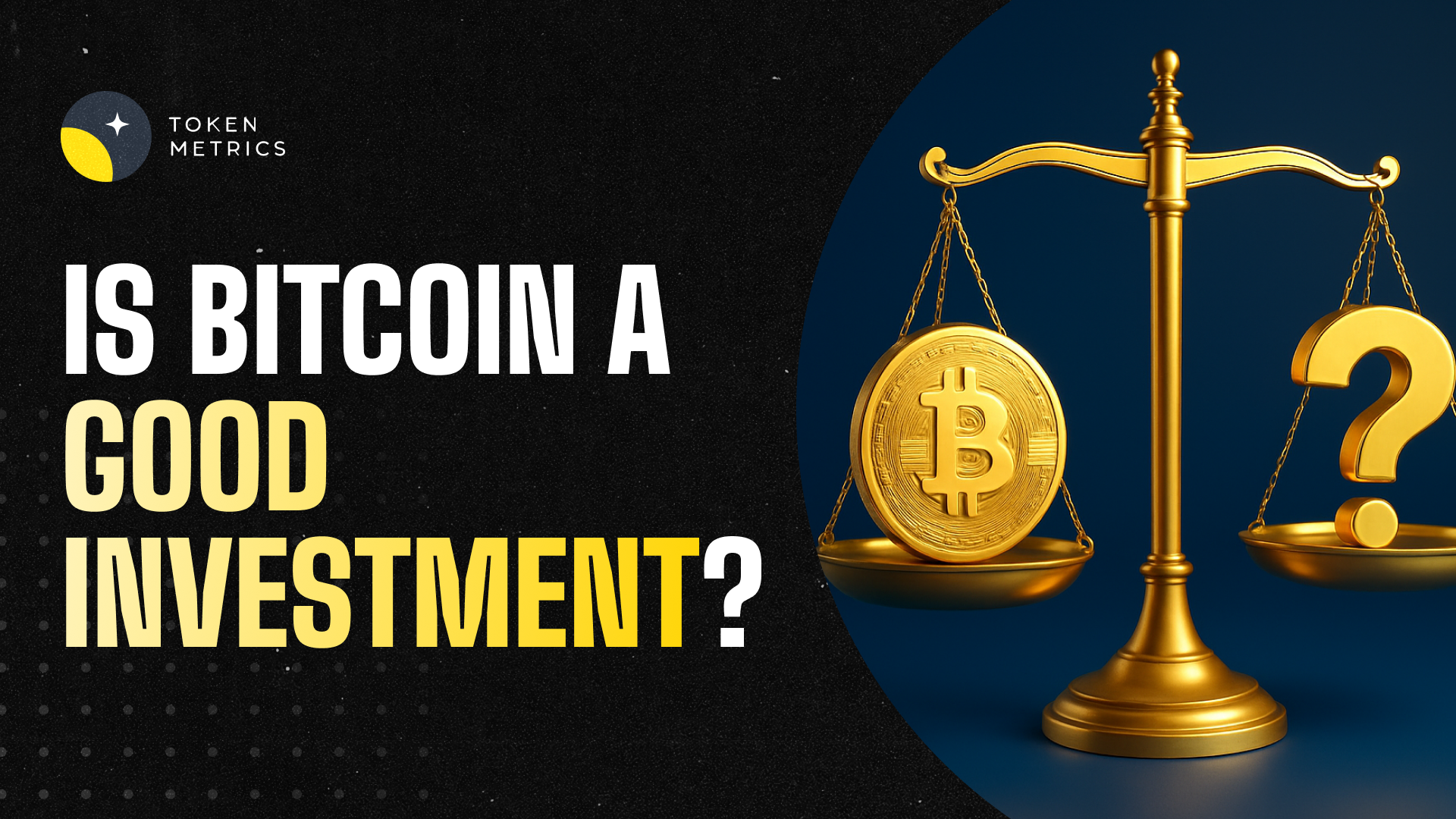
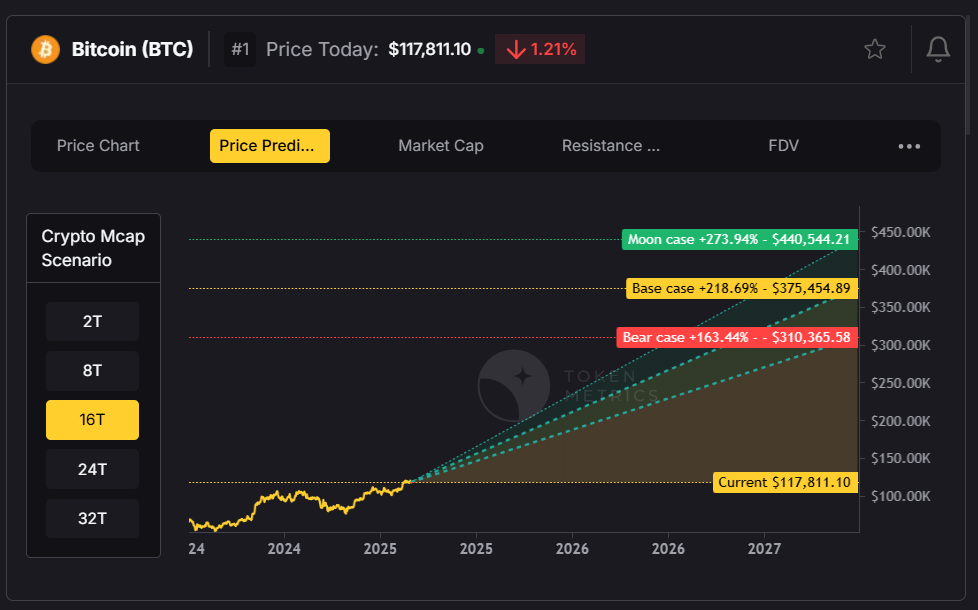

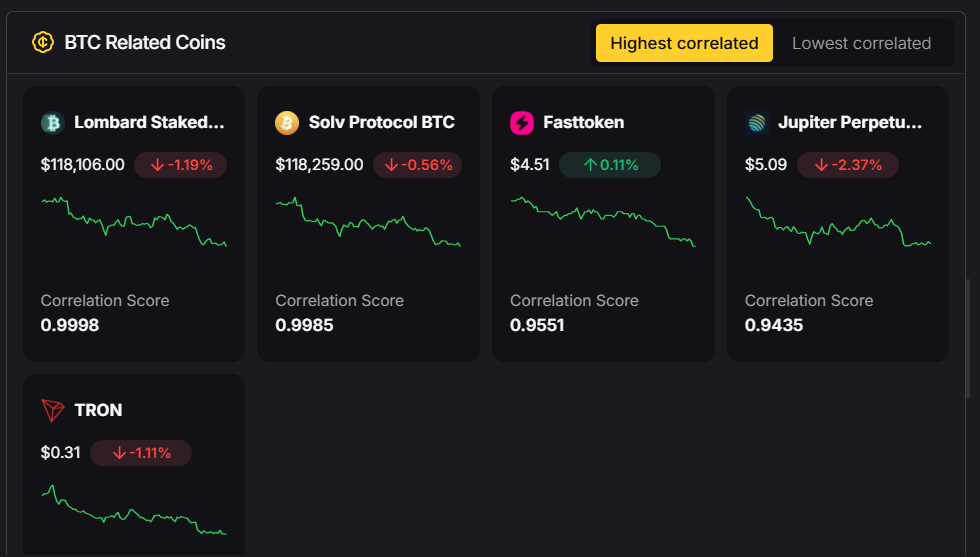

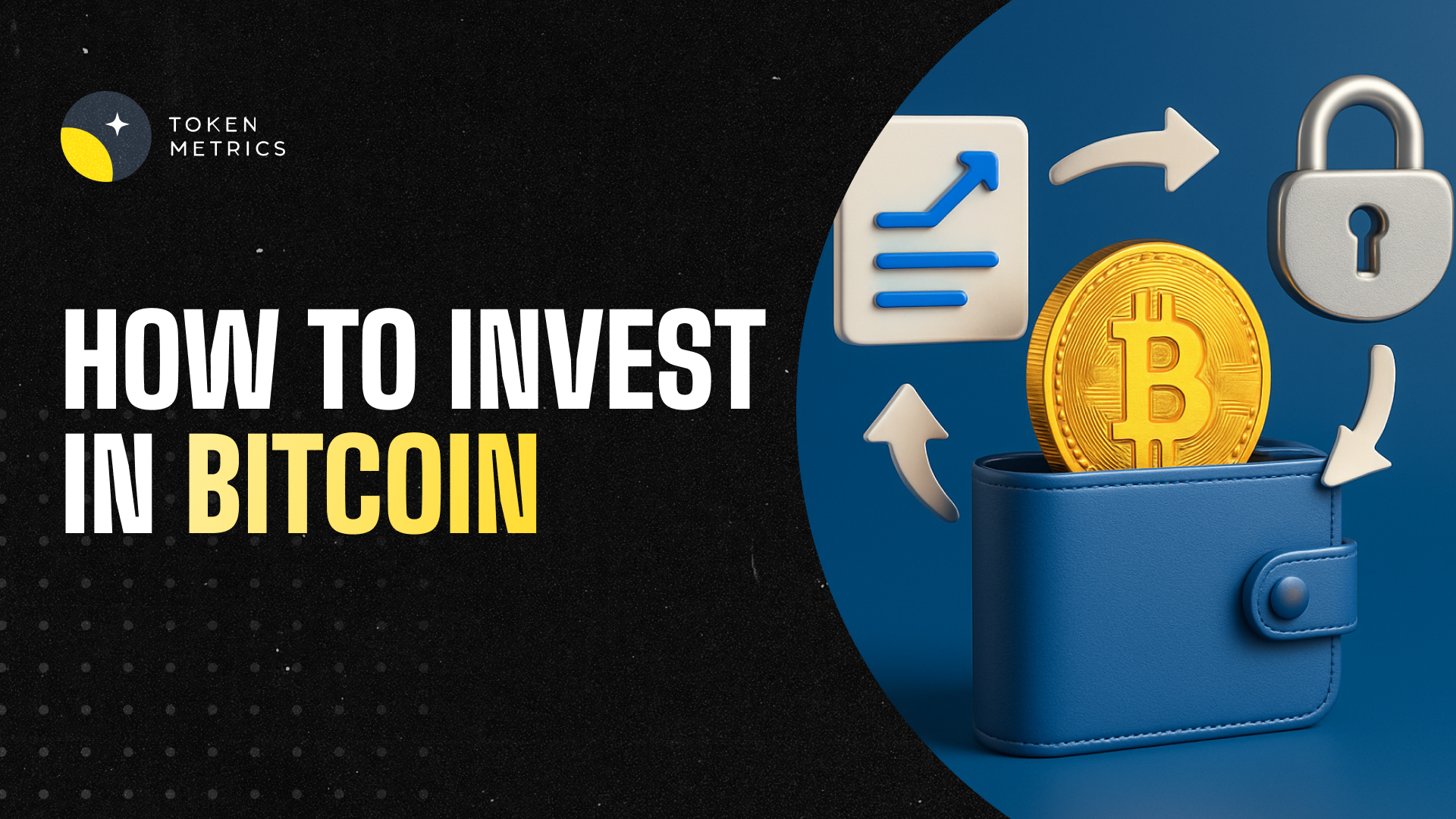


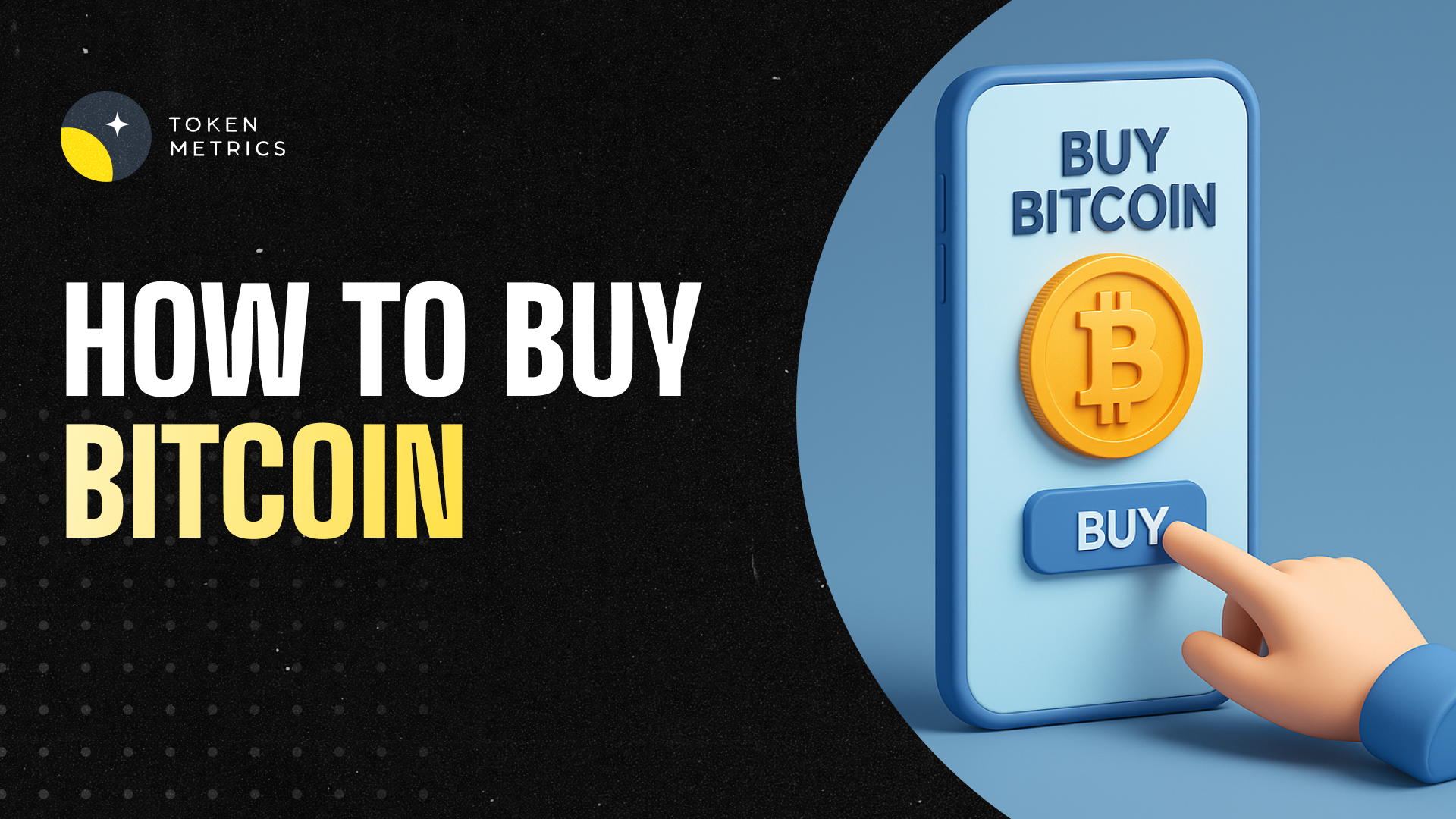





.svg)




.png)